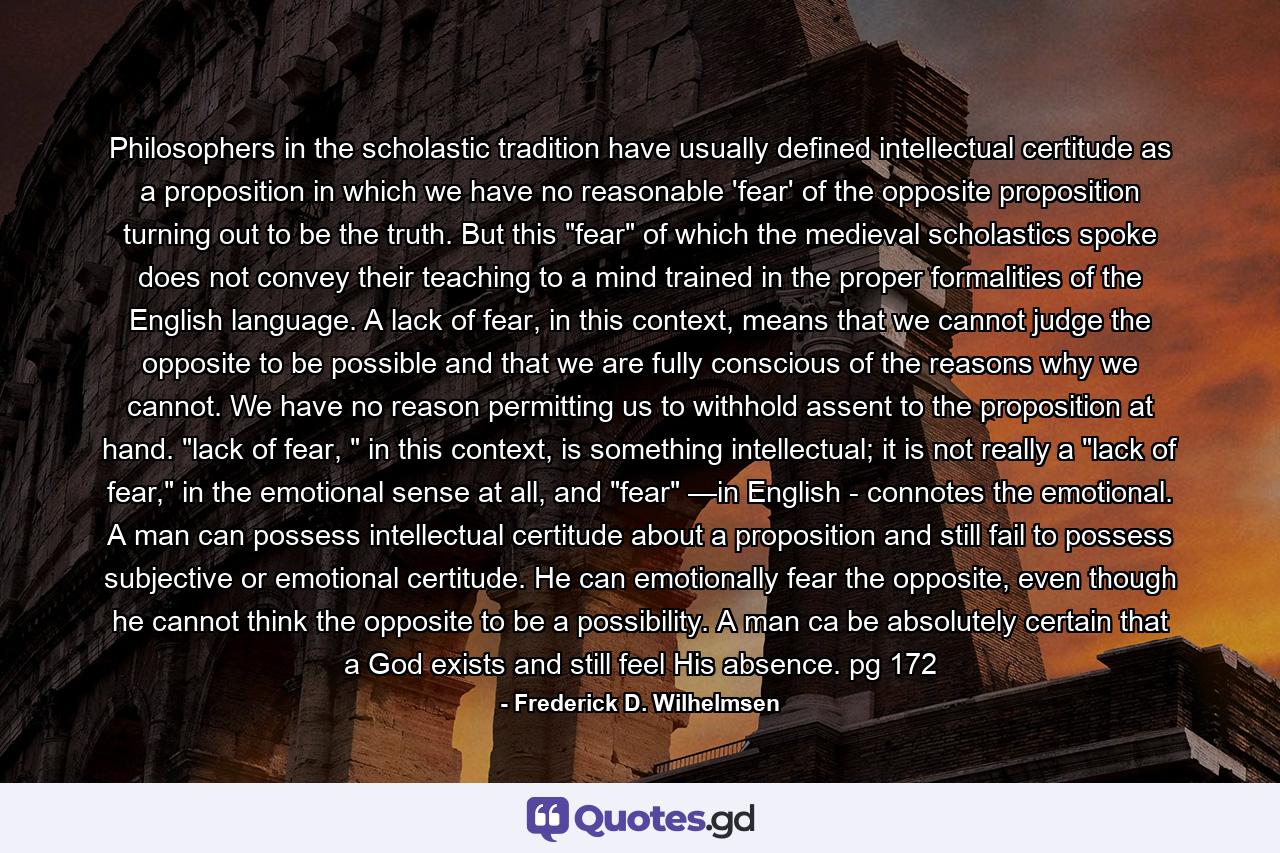Philosophers in the scholastic tradition have usually defined intellectual certitude as a proposition in which we have no reasonable ‘fear’ of the opposite proposition turning out to be the truth. But this “fear” of which the medieval scholastics spoke does not convey their teaching to a mind trained in the proper formalities of the English language. A lack of fear, in this context, means that we cannot judge the opposite to be possible and that we are fully conscious of the reasons why we cannot. We have no reason permitting us to withhold assent to the proposition at hand. “lack of fear, ” in this context, is something intellectual; it is not really a “lack of fear,” in the emotional sense at all, and “fear” —in English – connotes the emotional. A man can possess intellectual certitude about a proposition and still fail to possess subjective or emotional certitude. He can emotionally fear the opposite, even though he cannot think the opposite to be a possibility. A man ca be absolutely certain that a God exists and still feel His absence. pg 172
